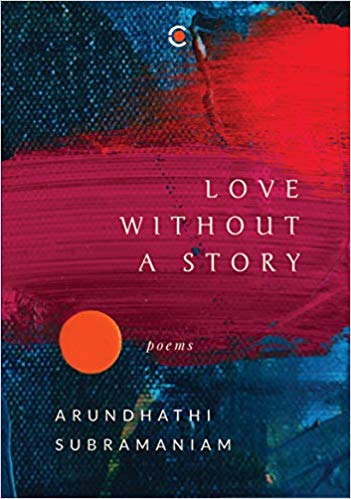The voices so near and yet so far consume a poet’s mind and oeuvre. Sometimes you are a dreamer and sometimes you look to depict reality. The characters and images run in and out of Arundhathi Subramaniam’s poems as you soak in oneness with the plots and sub plots within the lines. For instance, in the poem ‘In short’, she says, ‘and one day you realize you’re pane too, freckled by your own rigmaroles of vapours’. A short precise piece of revelation of human beings as intransient faces slapped on windowpanes, it reminds one of the effervescent essences of life.
The one poem describing the bus journey on the way to Ajmer Sharif is a telly-tale on also the kind of people and their faith on these spiritual seers! To each his own. The last line: ‘The poet and I exchange addresses.’ That’s a new age modernistic turn to the new age spiritual journeys where people meet for an above human experience yet keep mundane worldly aims in mind.
In another poem titled ‘When Landscape Becomes Woman’, a teenager peeping through the keyhole watches her own mother acting her social role as a perfect host, yet she understands her mother’s role as a pure woman’s attitude and not ‘geography’. The landscape that Arundhathi transforms you to is autobiographical and concoction of her childhood and grown up people/images/fun-slides, yet completely relatable as you and me travel through life and its perils!


An interesting discussion is worth comment. I think that you need to write more about this
subject, it may not be a taboo matter but typically
people do not talk about these issues. To the
next! Kind regards!!
Also visit my site – vpn coupon code 2024
I savour, lead to I discovered just what I was looking for.
You have ended my 4 day lengthy hunt! God Bless you man. Have a nice day.
Bye
Here is my web blog – vpn special
I think what you published made a great deal of sense. However, think on this,
suppose you added a little content? I ain’t saying your content isn’t solid., but what if you added a title that makes people desire more?
I mean Celebrating Love And Longing – The Book Review,
Monthly Review of Important Books is a little plain. You could peek at Yahoo’s front page and watch
how they create post titles to get people interested. You might try adding a video or a related pic or two to
get readers excited about everything’ve got to say. Just my opinion, it would make your posts a little livelier.
my web blog: vpn special coupon
It’s actually a great and helpful piece of info. I’m happy that you simply
shared this useful info with us. Please keep us informed like this.
Thanks for sharing.
Feel free to visit my page :: vpn special code
Right away I am going to do my breakfast, after having my breakfast coming yet again to read additional news.
Here is my web site :: vpn 2024